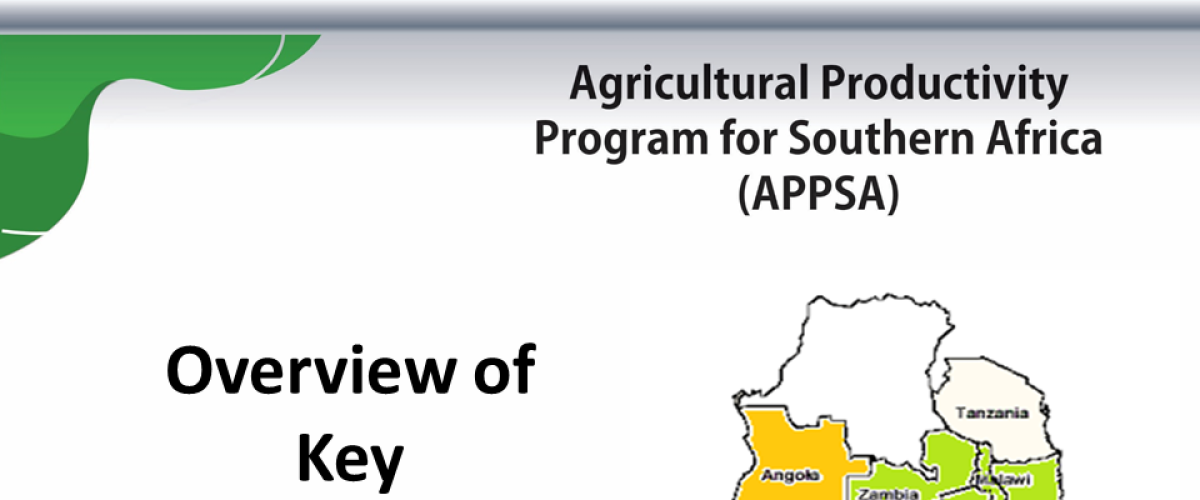
The World Bank conducted a joint Implementation Support Mission (ISM) for the Agricultural Productivity Programme for Southern Africa (APPSA), which is implemented by the Republic of Angola and the Kingdom of Lesotho and regionally coordinated by the Centre for Coordination of Agricultural Research and Development for Southern Africa (CCARDESA). The mission, which started on Monday 6th of June 2022 until Friday 10th of June 2022, was conducted virtually with attendance by Senior officials, implementation units and scientists from the two implementing countries, World Bank, APPSA Phase one countries, CCARDESA and different organisations who are supporting implementing partners in various forms.
This mission was aimed at taking stock of achievements since the last ISM which was held in November 2021. According to Dr Cliff Dlamini, CCARDESA Executive Director and Head of Mission, this ISM came in the right moment given that the project will soon undergo a Mid-Term-Review (MTR). “The upcoming MTR is geared to look at project achievements, identify challenges, recommend strategic reorientations, propose corrective measures where relevant, generate key lessons learnt, and provide decision makers with an independent objective analysis which can be used to make informed decisions on the project’s future direction to improve attainment of APPSA objectives.”
For Dr João Ferreira Neto, Director General of the Agronomic Research Institute of Angola (IIA), APPSA has progressed significantly since the last ISM. So far, Angola has disseminated about 7 improved varieties, being 3 of maize and 4 of cassava. In addition, Angola already identified 21 technologies from the APPSA Compendium of Technologies generated under APPSA phase 1. Aligned to this, Dr Lefulesele Lebesa, Director of the Department of Agricultural Research (DAR) of Lesotho, took the opportunity to commend APPSA for being able to bring on board previous implementing countries to share their wisdom and guidance.
APPSA implementing partners reported to the World Bank progress made on different project components which included: Technology generation & Dissemination, Regional Centers of Leadership (RCoLs) capacity strengthening, Coordination and Management, Monitoring and evaluation, Knowledge Management, Infrastructure, Fiduciary (Procurement and Financial Management), and Environmental and Social Safeguards. Reporting ended with a synthesis of key actions and a discussion on approaches to take regarding the upcoming MTR.
APPSA is currently implementing 18 sub-projects led by scientists from both Angola and Lesotho. A total of 27 new concept notes are expected to be commissioned before the end of this year. Regarding dissemination, APPSA is currently at 56% on the target for 2022. From the last ISM to date, 23 agricultural technologies have been disseminated as a combined figure for Angola and Lesotho out of 45 planned for this year.
The World Bank, led by the APPSA Regional Task Team Leader (TTL) - Tahira Syed, advised implementing countries, including CCARDESA, to take the opportunity of the upcoming MTR to revise and/or adjust targets according to the contextual reality to ensure the successful implementation of the commitments as reflected in the Project Appraisal Document (PAD).
APPSA is a six-year World Bank funded initiative currently under implementation in Angola and Lesotho, with regional coordination by CCARDESA. Lesotho is establishing the Regional Centre of Leadership on Horticulture and Horticulture-based farming systems whereas Angola is focusing on Cassava and Cassava-based farming systems. Research outputs from both are expected to benefit the entire SADC region. The World Bank undertakes the ISM twice a year in the months of June and November.





